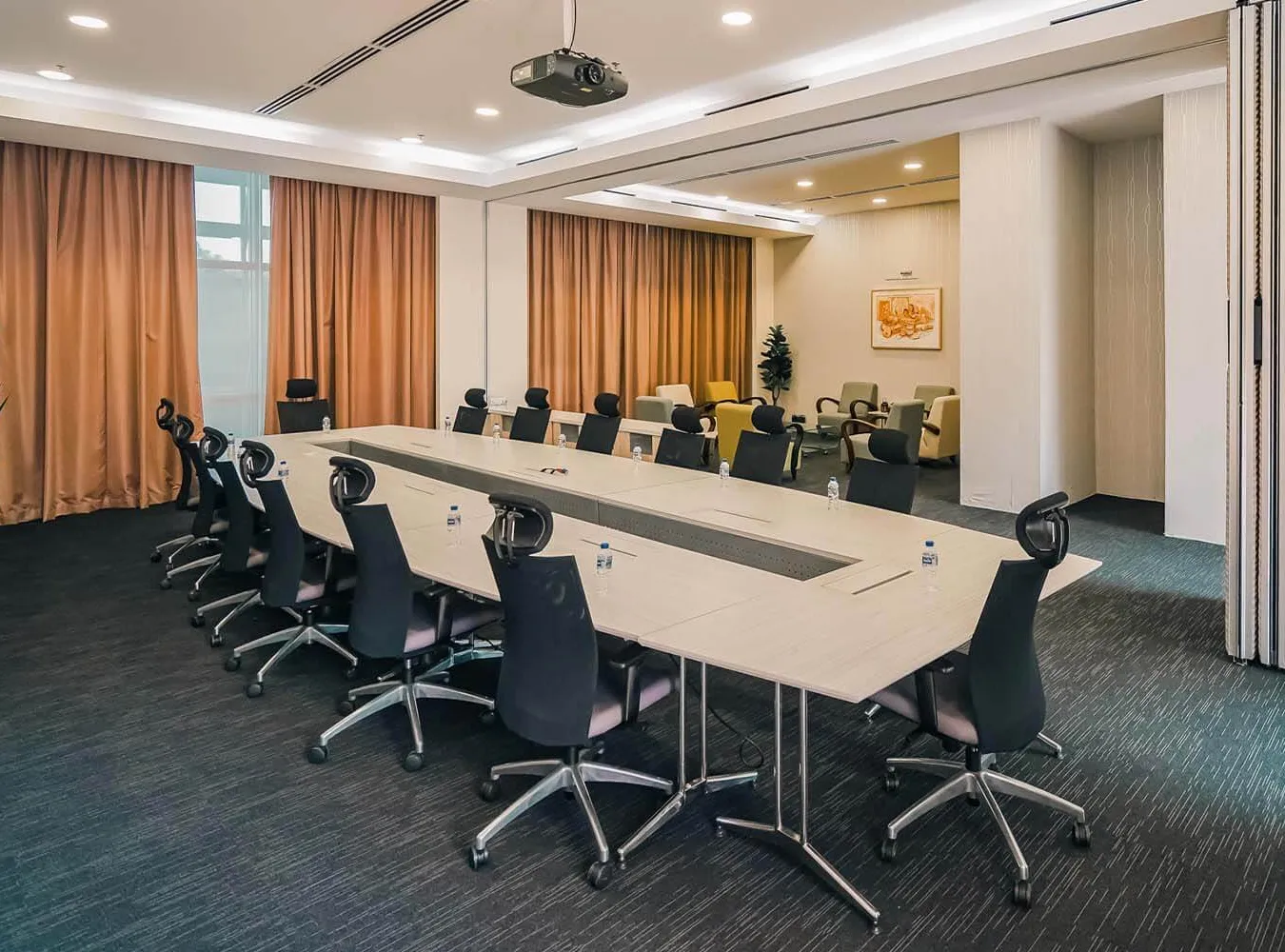Advanced FACTS Training: Power Flow and Transmission System Control
Course Overview
The Advanced FACTS Training: Power Flow and Transmission System Control course provides participants with a comprehensive understanding of Flexible AC Transmission Systems and their critical role in modern electrical networks. The course integrates both theory and applied practice, focusing on advanced FACTS devices such as the Static Synchronous Series Compensator (SSSC) and the Distributed Power Flow Controller (DPFC). Participants will develop practical skills to analyze, model, and control power flow, optimize grid stability, and enhance system reliability using modern techniques in reactive power compensation and dynamic control.
This power system control course offers a holistic approach to mastering FACTS controller training and practical power electronics applications, aligned with industry needs in smart grid engineering, renewable integration, and advanced grid technologies.
Target Audience
- Power system engineers and electrical network operators
- Energy control and protection engineers
- Smart grid and automation specialists
- Transmission planners and consultants
- Academic professionals and postgraduate electrical engineers
Targeted Organizational Departments
- Power transmission and distribution units
- Control and automation departments
- Smart grid development and digital substation divisions
- Electrical engineering R&D centers
- Renewable energy integration and optimization teams
Targeted Industries
- Power generation and transmission companies
- Renewable energy and hybrid system providers
- Industrial facilities relying on stable electrical distribution
- Engineering consulting firms and design contractors
- Government agencies and utilities regulating energy infrastructure
Course Offerings
By completing this training, participants will be able to:
- Design and implement FACTS devices in power systems to improve efficiency
- Simulate SSSC and DPFC models for power flow management and grid control
- Apply optimization techniques to voltage and reactive power regulation
- Evaluate FACTS integration in smart grids for load balancing and reliability
- Interpret system performance metrics and harmonics mitigation strategies
- Develop implementation frameworks for FACTS-based system enhancements
Training Methodology
The course uses a blended approach of expert instruction, technical demonstrations, group collaboration, and hands-on simulation activities. Participants will analyze real-world case studies and interpret simulation results related to FACTS and DPFC systems. Interactive discussions, peer evaluations, and scenario-based exercises strengthen conceptual understanding and technical application. The program also includes guided workshops and modeling sessions focusing on FACTS device coordination and performance optimization in power systems.
Course Toolbox
- Course workbook and digital lecture slides
- FACTS modeling templates and case-based exercises
- Power flow control diagrams and fault simulation models
- Technical glossaries for FACTS terminology and devices
- Worksheets for system optimization and performance evaluation
- Implementation checklist for SSSC and DPFC operation and maintenance
Note: Tools are not physically provided; the course focuses on knowledge, insights, and real-world examples.
Course Agenda
Day 1: Fundamentals of FACTS and Transmission Control
- Topic 1: Principles and evolution of Flexible AC Transmission Systems
- Topic 2: Classification and functions of FACTS devices in power systems
- Topic 3: Fundamentals of power flow control and system constraints
- Topic 4: Reactive power compensation and voltage regulation basics
- Topic 5: Overview of FACTS architecture and control structures
- Topic 6: Emerging trends in smart grid engineering and automation
- Reflection & Review: Key learnings and introduction to advanced FACTS applications
Day 2: Static Synchronous Series Compensator (SSSC) Mastery
- Topic 1: SSSC operating principles and system configuration
- Topic 2: Power injection control and phase shifting mechanisms
- Topic 3: Harmonic reduction and resonance mitigation using SSSC
- Topic 4: Comparative analysis of SSSC versus TCSC and STATCOM
- Topic 5: SSSC implementation in long-distance transmission networks
- Topic 6: Control strategies and protection schemes for SSSC applications
- Reflection & Review: Lessons learned and case analysis on SSSC effectiveness
Day 3: Distributed Power Flow Controller (DPFC) and Modern Solutions
- Topic 1: Concept and architecture of Distributed Power Flow Controller
- Topic 2: Coordination between shunt and series controllers
- Topic 3: Control algorithms and synchronization strategies in DPFC systems
- Topic 4: Practical benefits and challenges of modular DPFC design
- Topic 5: DPFC applications in reactive power management and load balancing
- Topic 6: Advanced DPFC protection and fault response scenarios
- Reflection & Review: Discussion on DPFC reliability and performance comparison
Day 4: Grid Optimization and FACTS Integration
- Topic 1: Advanced optimization techniques for FACTS device placement
- Topic 2: Integration of FACTS with renewable and hybrid energy sources
- Topic 3: Real-time monitoring and SCADA-based FACTS control systems
- Topic 4: Power electronics innovations for next-generation grid control
- Topic 5: Data-driven analysis for FACTS operation and maintenance planning
- Topic 6: Adaptive control models for multi-terminal and distributed systems
- Reflection & Review: Key insights from optimization projects and simulations
Day 5: Operations, Maintenance, and Future Developments
- Topic 1: FACTS system commissioning and performance validation
- Topic 2: Maintenance planning and troubleshooting for FACTS devices
- Topic 3: Risk management and safety protocols in FACTS deployment
- Topic 4: AI and digital twin applications in smart grid monitoring
- Topic 5: Case studies of global FACTS installations and results
- Topic 6: Future directions: FACTS evolution in next-generation power systems
- Reflection & Review: Recap, participant presentations, and final course insights
FAQ
What specific qualifications or prerequisites are needed for participants before enrolling in the course?
A basic background in electrical, power, or control engineering is recommended. Familiarity with transmission or grid systems will help participants fully engage in simulation exercises.
How long is each day's session, and is there a total number of hours required for the entire course?
Each daily session runs approximately 4–5 hours, totaling around 25 hours of instruction, discussion, and exercises over five days.
How do FACTS controllers enhance grid reliability and renewable integration?
FACTS controllers regulate voltage, improve power factor, and stabilize power flow in real time. This allows for efficient renewable energy integration, load balancing, and enhanced system reliability across the grid.
How This Course is Different from Other Advanced FACTS Courses
This program stands out by combining theoretical depth with practical, application-driven exercises in FACTS controller training. It emphasizes hands-on modeling, live performance analysis, and optimization techniques to simulate real transmission scenarios. The course integrates advanced practices in SSSC and DPFC control with current smart grid developments, preparing participants to lead engineering teams in implementing efficient, flexible, and future-ready power systems.
credits: 5 credit per day
Course Mode: full-time
Provider: Agile Leaders Training Center
-
Events for this Course!!
-
Phuket 2025-11-16
-
Cape town 2025-11-23
-
Rome 2025-11-24
-
Zoom 2025-11-30
-
Johannesburg 2025-11-30
-
Amsterdam 2025-12-01
-
Amman 2025-12-07
-
Zoom 2025-12-07
-
Zoom 2025-12-15
-
Milan 2025-12-15
-
Istanbul 2025-12-15
-
Kuala Lumpur 2025-12-22
-
Nice 2025-12-22
-
London 2025-12-30
-
Amsterdam 2025-12-30
-
Manama 2026-01-05
-
Sharm El-Sheikh 2026-01-06
-
Madrid 2026-01-13
-
Casablanca 2026-01-20
-
Istanbul 2026-01-27
-
Accra 2026-02-02
-
Cairo 2026-02-03
-
Baku 2026-02-17
-
Dubai 2026-02-17
-
Paris 2026-02-24
-
London 2026-03-03
-
Milan 2026-03-03
-
Sharm El-Sheikh 2026-03-10
-
Madrid 2026-03-10
-
Montreux 2026-03-17
-
Rome 2026-03-17
-
Bali 2026-03-23
-
Barcelona 2026-03-24
-
Langkawi 2026-03-30
-
Cairo 2026-03-31
-
Kuwait 2026-04-06
-
Tokyo 2026-04-07
-
Jakarta 2026-04-13
-
Dubai 2026-04-14
-
Baku 2026-04-21
-
Munich 2026-04-28
-
Istanbul 2026-04-28
-
Athens 2026-05-04
-
Vienna 2026-05-05
-
Manama 2026-05-11
-
Casablanca 2026-05-12
-
London 2026-05-19
-
Tbilisi 2026-05-26
-
Paris 2026-05-26
-
Geneva 2026-06-01
-
Amsterdam 2026-06-02
-
Trabzon 2026-06-08
-
Milan 2026-06-16
-
Kuala Lumpur 2026-06-16
-
Zanzibar 2026-06-22
-
Dubai 2026-06-23
-
Prague 2026-06-29
-
Barcelona 2026-06-30
-
Istanbul 2026-07-07
-
Rome 2026-07-14
-
Nice 2026-07-14
-
Amman 2026-07-20
-
Manama 2026-07-27
-
Tokyo 2026-07-28
-
Paris 2026-08-04
-
Madrid 2026-08-04
-
Casablanca 2026-08-11
-
Milan 2026-08-11
-
Barcelona 2026-08-25
-
Bangkok 2026-08-31
-
London 2026-09-01
-
Chicago 2026-09-21
-
Amsterdam 2026-09-22
-
Nairobi 2026-09-28
-
Kuala Lumpur 2026-09-29
-
Al Jubail 2026-10-05
-
Cairo 2026-10-06
-
Athens 2026-10-12
-
Tokyo 2026-10-13
-
Vienna 2026-10-20
-
Madrid 2026-10-27
-
Doha 2026-11-02
-
Barcelona 2026-11-03
-
Muscat 2026-11-09
-
Dubai 2026-11-10
Upcoming Events
📅 Showing events from Week 46, 2025 to Week 45, 2026
| Image | Location | Dates | Duration | Mode | Price | Actions |
|---|---|---|---|---|---|---|

|
Phuket |
Week 46, 2025 Nov 16, 2025 - Nov 20, 2025 |
5 Days | Onsite | €6,000 | |

|
Cape town |
Week 47, 2025 Nov 23, 2025 - Nov 27, 2025 |
5 Days | Onsite | €6,000 | |

|
Rome |
Week 48, 2025 Nov 24, 2025 - Nov 28, 2025 |
5 Days | Onsite | €5,700 | |

|
Zoom |
Week 48, 2025 Nov 30, 2025 - Dec 4, 2025 |
5 Days | Online | €1,350 | |

|
Johannesburg |
Week 48, 2025 Nov 30, 2025 - Dec 4, 2025 |
5 Days | Onsite | €6,000 | |

|
Amsterdam |
Week 49, 2025 Dec 1, 2025 - Dec 5, 2025 |
5 Days | Onsite | €5,700 | |

|
Amman |
Week 49, 2025 Dec 7, 2025 - Dec 11, 2025 |
5 Days | Onsite | €4,100 | |

|
Zoom |
Week 49, 2025 Dec 7, 2025 - Dec 11, 2025 |
5 Days | Online | €1,350 | |

|
Zoom |
Week 51, 2025 Dec 15, 2025 - Dec 19, 2025 |
5 Days | Online | €1,350 | |

|
Milan |
Week 51, 2025 Dec 15, 2025 - Dec 19, 2025 |
5 Days | Onsite | €5,700 | |

|
Istanbul |
Week 51, 2025 Dec 15, 2025 - Dec 19, 2025 |
5 Days | Onsite | €4,500 | |

|
Kuala Lumpur |
Week 52, 2025 Dec 22, 2025 - Dec 26, 2025 |
5 Days | Onsite | €5,200 | |

|
Nice |
Week 52, 2025 Dec 22, 2025 - Dec 26, 2025 |
5 Days | Onsite | €5,700 | |

|
London |
Week 01, 2025 Dec 30, 2025 - Jan 3, 2026 |
5 Days | Onsite | €5,700 | |

|
Amsterdam |
Week 01, 2025 Dec 30, 2025 - Jan 3, 2026 |
5 Days | Onsite | €5,700 | |

|
Manama |
Week 02, 2026 Jan 5, 2026 - Jan 9, 2026 |
5 Days | Onsite | €4,700 | |

|
Sharm El-Sheikh |
Week 02, 2026 Jan 6, 2026 - Jan 10, 2026 |
5 Days | Onsite | €4,100 | |

|
Madrid |
Week 03, 2026 Jan 13, 2026 - Jan 17, 2026 |
5 Days | Onsite | €5,700 | |

|
Casablanca |
Week 04, 2026 Jan 20, 2026 - Jan 24, 2026 |
5 Days | Onsite | €4,100 | |

|
Istanbul |
Week 05, 2026 Jan 27, 2026 - Jan 31, 2026 |
5 Days | Onsite | €4,500 |
